Lion as a pet
Categories: Animals | Celebrities
By Pictolic https://pictolic.com/article/lion-as-a-pet.htmlActress Melanie Griffith's mother, actress and model Tippi Hedren, has long been known for her love of large predatory cats. Back in the early 70s, she created the Shambhala private reserve for large representatives of the cat family raised in captivity. Located just 30 miles from bustling Los Angeles, the reserve is home to more than seven dozen predators - tigers, lions, pumas, servals and other big cats.
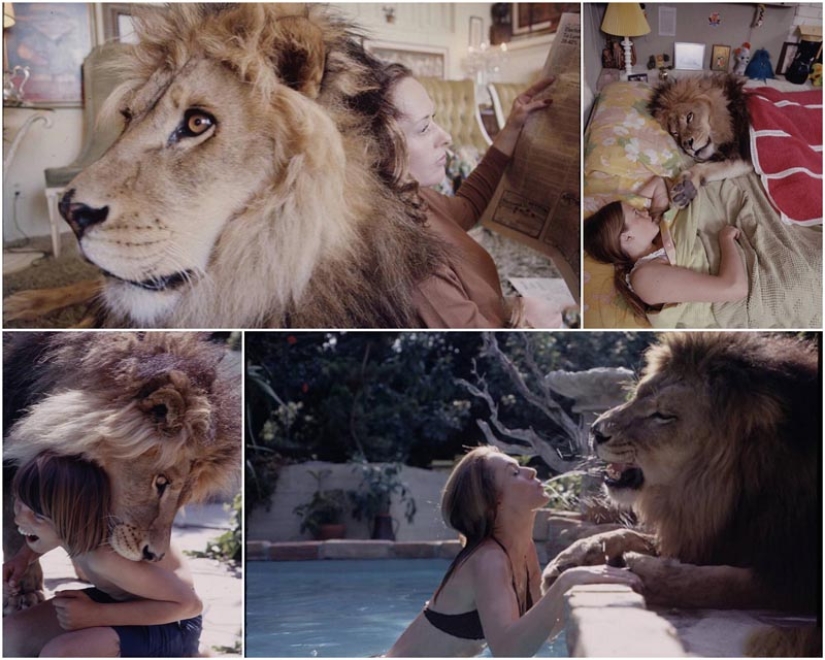
At different times, lions and tigers lived in the actress’s house. In the photographs from this issue, taken in the early 70s by a photojournalist for LIFE magazine, you will see one of Tippy's pets - an adult lion named Togar.

Noelle Marshall was the agent of actress Tippi Hedren (best known for her role in Hitchhawk's The Birds) and her husband from 1964 to 1982.

Noel became the producer of three films with Tippy's participation, the main of which was the film Roar, which was released in 1981.

Noel not only produced this film, but also acted as a screenwriter, director, and also played one of the main roles - the father of the family.

Melanie Griffith, Tippy's daughter, played the main character's daughter, also named Melanie, in the film. In addition, Noel's sons Jim and Jerry appeared in the film.
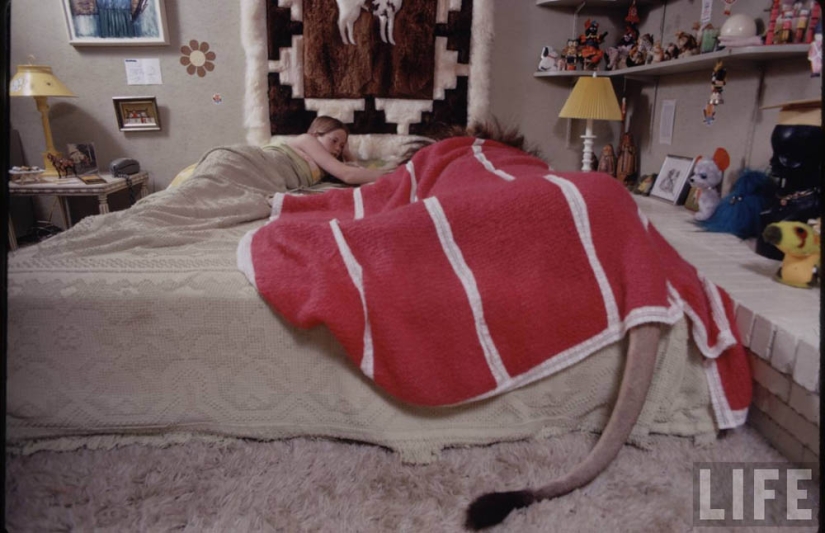
According to the plot of the film, which is a thriller, a family living on a ranch, surrounded by their pets - two elephants and more than a hundred predatory cats, one day finds themselves in an awkward position, to put it mildly - two villainous poachers approach them, the appearance of which leads to... that pets are getting out of control. The family is forced to seek refuge in the house, hiding from the onslaught of angry predators.

Filming, which lasted more than 10 years, cost a considerable sum for those years - $17 million.

Unfortunately, the film did not pay for itself - when it was released in 1981, it received only 2 million box office receipts.
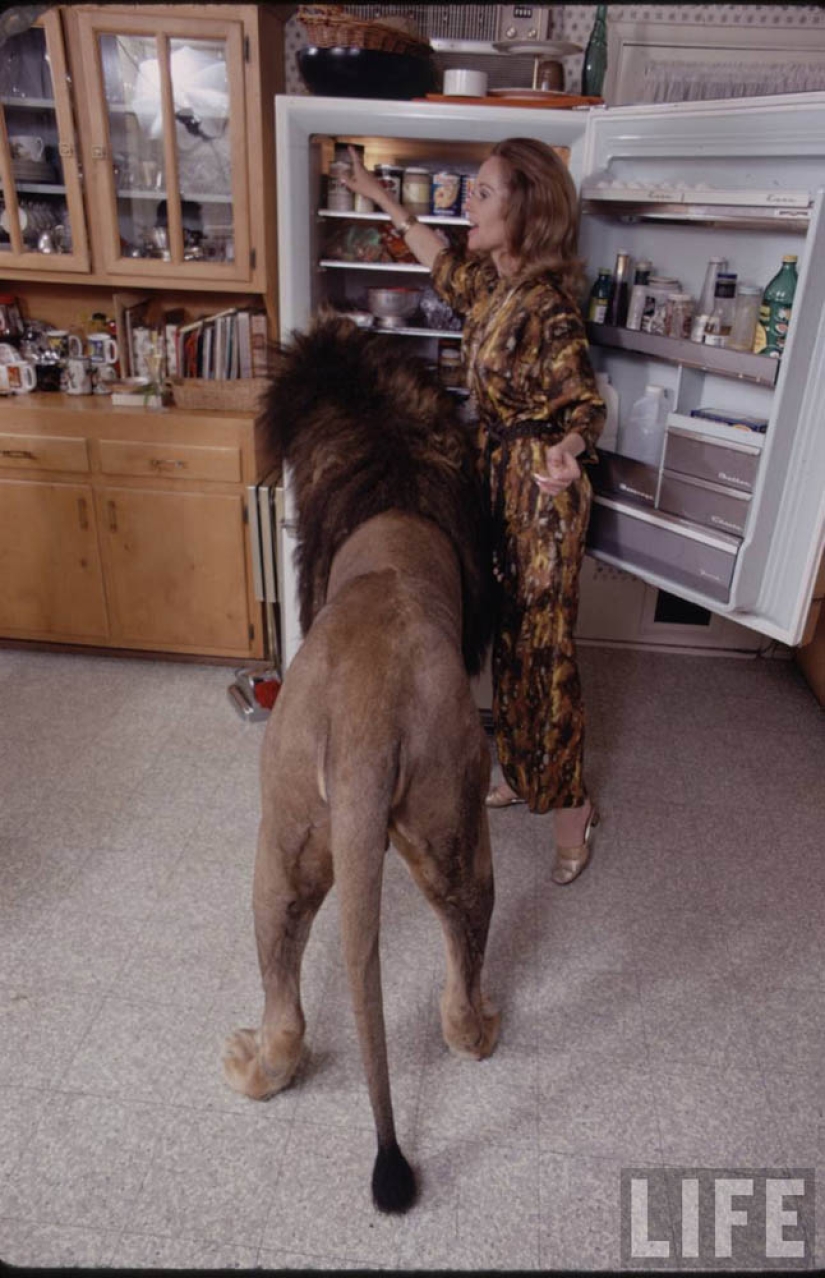

On the authoritative English-language film resource Internet Movie Database, the box office failure Roar was called the most expensive home video in history.

On the same resource, the film has a fairly low audience rating of 5.8.
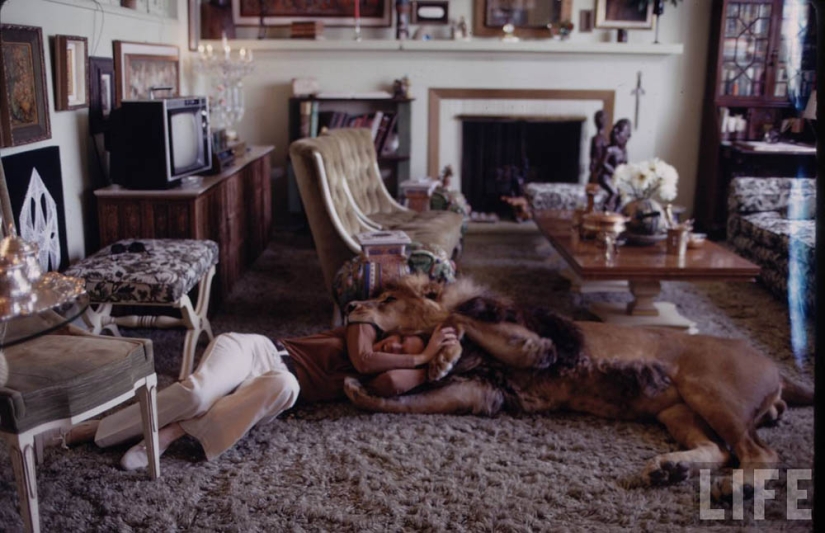
Despite all this, the closeness between humans and predators shown in the film cannot leave the viewer indifferent.

Based on her experience filming Roar, Tippi Hedren wrote the book Cats of Shambhala, which was published in 1985.
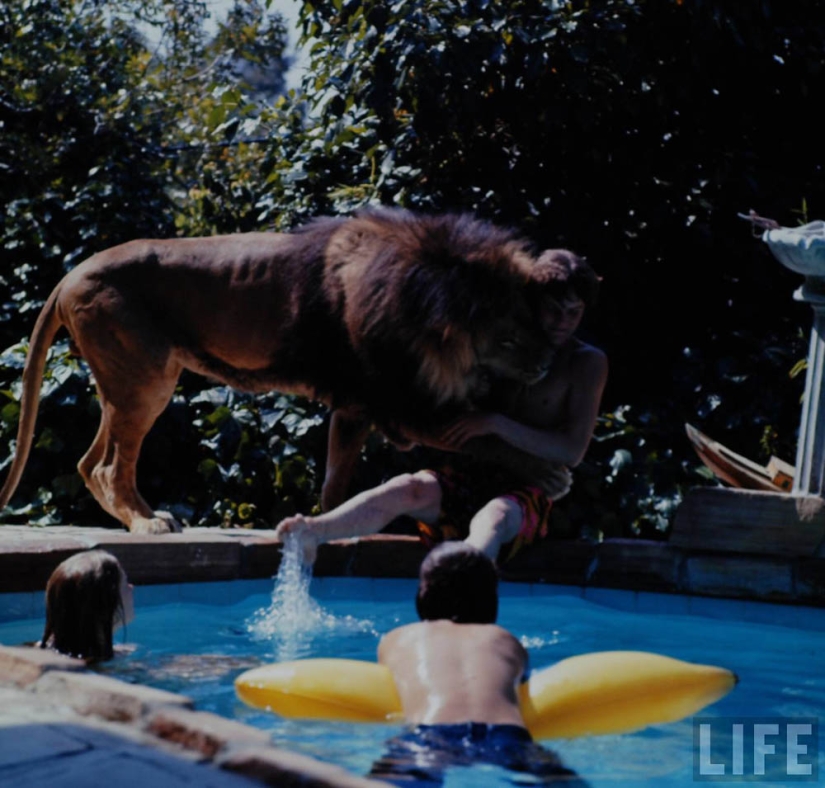
The actress characterizes the film as perhaps one of the most dangerous in Hollywood history. It's amazing that we all survived.
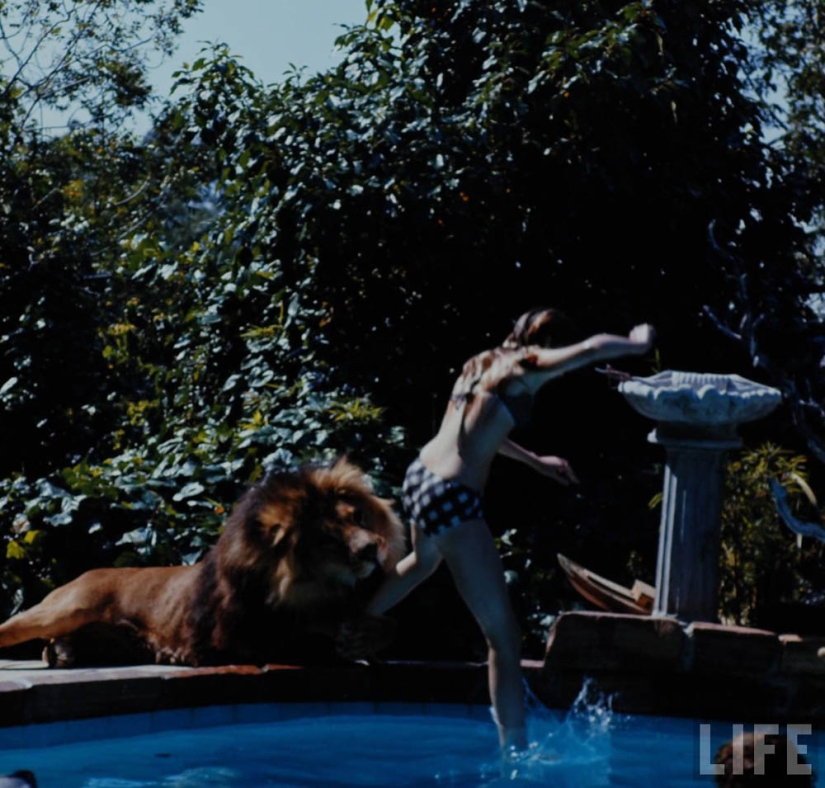
During filming, the actress, her husband and their children were repeatedly attacked by predators, and the main director of the film, Jan de Bont, suffered the most.

A well-known conservationist, Tippi Hedren is also the creator of the Shambhala Sanctuary for predatory cats raised in captivity. It is located on a sprawling 10-acre property north of Los Angeles and is supported by the Rev Foundation, founded by the actress in 1983. The main goal of the foundation is to increase public knowledge about wildlife in our world.

Today, Shambhala is home to such predators as African lions, Siberian and Bengal tigers, leopards, servals, pumas, lynxes, as well as one Florida panther and one liger - a cross between a lion and a tiger.
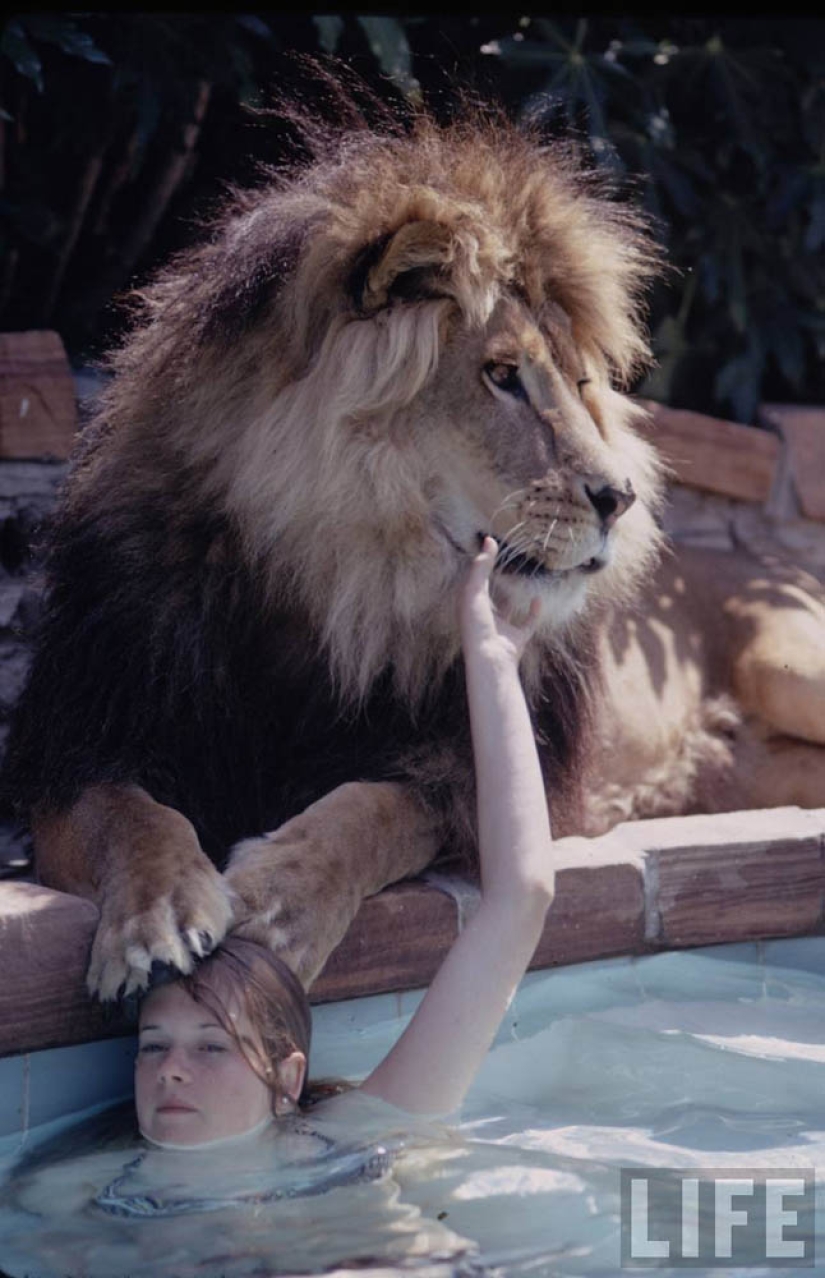
Most of the animals in Shambhala were born in captivity, were purchased from circuses and zoos, are orphans or animals abandoned by their former owners who were unable to care for their predatory pets.
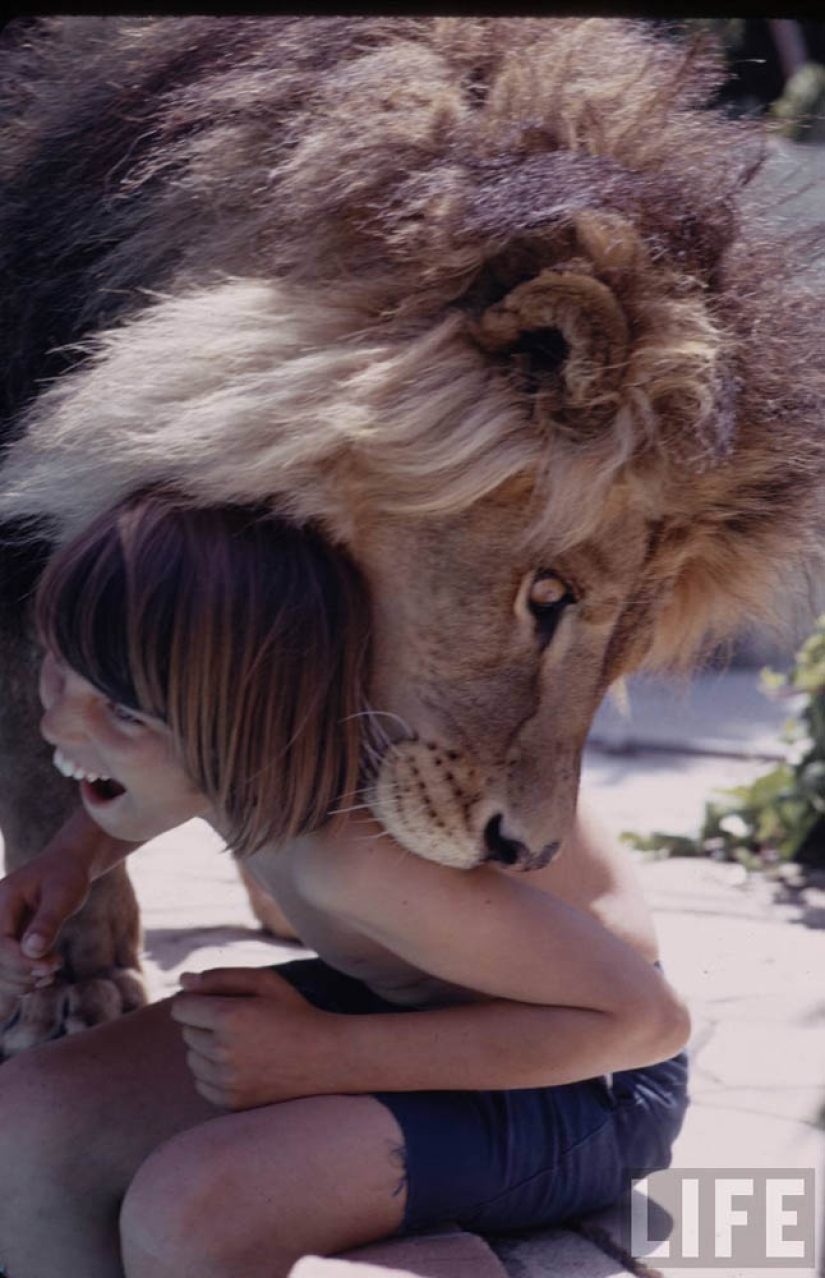
For example, Shambhala became the new home for Michael Jackson's two Bengal tigers, Sabu and Thriller, after he decided to close his zoo at the Neverland Valley Ranch in Los Olivos, California.
Recent articles

It's high time to admit that this whole hipster idea has gone too far. The concept has become so popular that even restaurants have ...

There is a perception that people only use 10% of their brain potential. But the heroes of our review, apparently, found a way to ...

New Year's is a time to surprise and delight loved ones not only with gifts but also with a unique presentation of the holiday ...